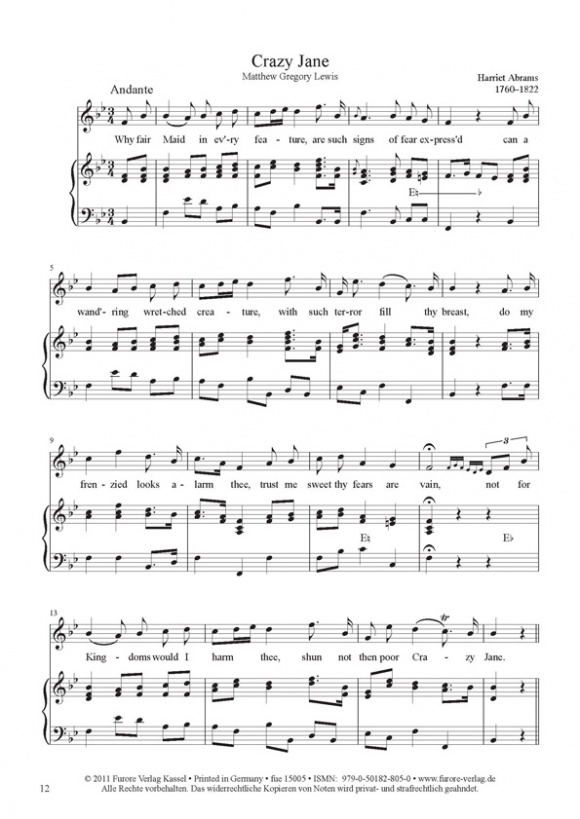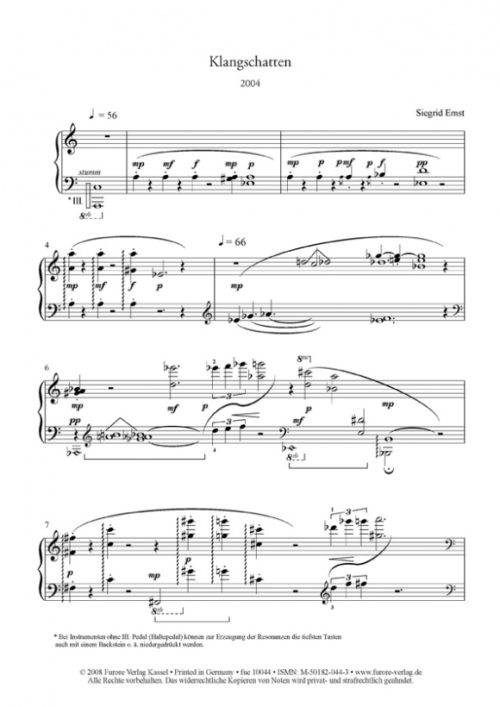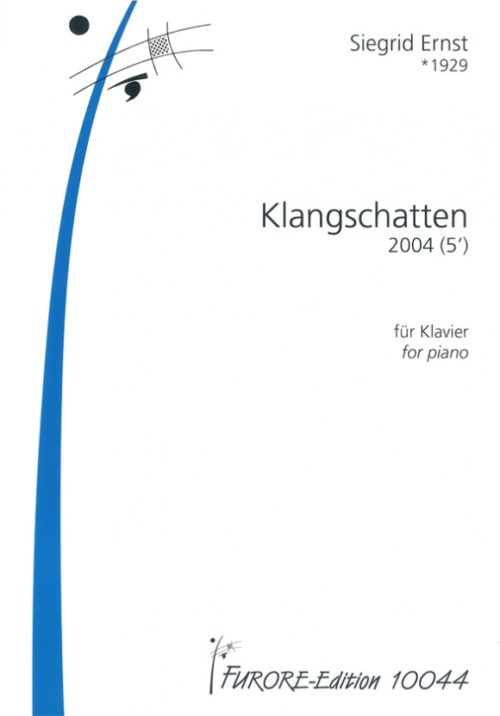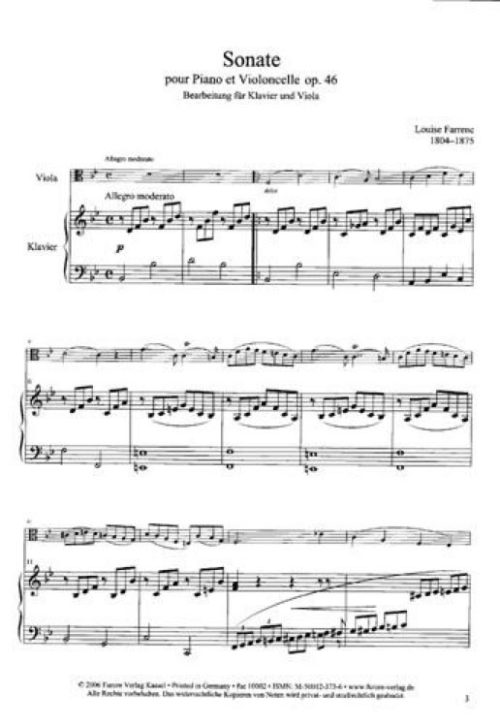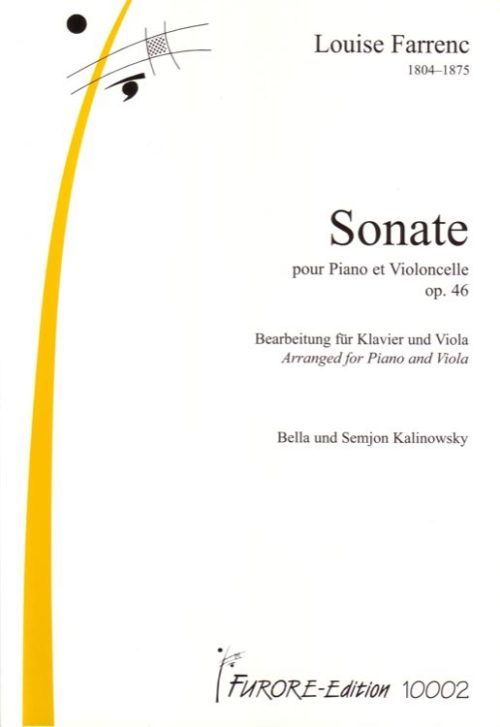Description
Instrumentation: voice and harp (or piano)
Edition: score with biographies and notes on the work
Difficulty: medium
Harriet Abrams, Jeanne-Renée de Travanet, Josephine Lorenziti, Zoé de la Rüe, Pauline Duchambge, Louise de Beaucourt, Maria Malibran
In the middle of the 18th century the newly invented single-action harp quickly gained great popularity, influenced by the harp-playing Queen Marie Antoinette.
The harp fulfilled many conditions attributed to women: it was an instrument suitable to accompaniment – a mirror of the social position of women. It was a domestic instrument, not primarily used in the context of professional music-making. And finally, playing it did not alter a woman‘s bodily position or her facial expression. Putting the instrument between the legs – otherwise considered unseemly for women – and exposing the arms to the public‘s gaze, surely made harp playing interesting for male viewers to watch.
No other instrument became so rapidly and so strongly linked to one sex as the harp in mid eighteenth-century France. Since the harp as well as the piano was part of the education of aristocratic and upper class daughters, many pieces for voice were written with „pianoforte or harp“ accompagniment. Most of these works fell into oblivion. With the publication of some of these pieces I would like to make them accessible to a larger public. The selection is made to offer a great variety of music by different women composers.


